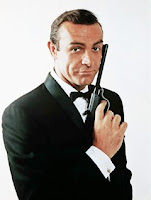 |
| Don't do it Stewart, I'm sure you were only joking! |
Not that long ago, in Stewart Lee’s sometimes brilliant television stand-up show the comic trotted out one of the most well-worn comedy observations of recent years; that adults have no business reading the Harry Potter books as they’re principally written for children.
This is, frankly, bollocks.
This is, frankly, bollocks.
Ignoring my enjoyment of said novels, what I find so galling about such a statement is not only the assumptions it makes about children’s literature in general, but also the limitations it places on the reader as to what suddenly becomes acceptable to read. Hurrying past the library’s brightly-coloured books section lest we should endure derision from the furrow-browed intellectual snobbery of our peers doesn’t show intelligence, it displays conformism and fear. It also reinforces the absurd notion that said genre, with its imagination and verve and, on occasion, timeless quality, is somehow less ‘worthy’ than that of its older brother labelled simply “fiction”. I struggle to see why the sneers of those who have abandoned an entire field of literature just because of time’s inevitable progression should have any say in the choices of those who remain open to storytelling of all forms.
 |
| Go on, you know you want to. |
Well-written “children’s books” (as they can be so disparagingly titled) transcend the need for an upper age restriction and fire the imagination of all readers. The stories of Judy Blume, David Tinkler, Anthony Horowitz, Roger Hargreaves, Dick King Smith and the incomparably brilliant Roald Dahl all still resonate with me today, regardless of my age when I first read them. Neither should the immediate trappings in appealing primarily to the young have any adverse effect on the story told. Because we are no longer young ourselves, why should we read about only adult protagonists? You might as well argue that women shouldn’t read car manuals or skinny people cook books.
 I’m not debating the quality of any of these authors’ writing (and god knows, Rowling herself has shoehorned in more than her fair share of clunky expositional dialogue in her time), I’m arguing for the right to read them without sanctimonious reproach from the repressed. Neither, I should add, am I asking for an academic recognition of the above authors’ work. Mr Bump isn’t a morality tale on the fragility of human life in its physical form; it’s about a blue accident-prone spherical man. And why not? He’s a calamitous idiot who smashes into trees, causing their apples to fall to the ground - he’s brilliant!
I’m not debating the quality of any of these authors’ writing (and god knows, Rowling herself has shoehorned in more than her fair share of clunky expositional dialogue in her time), I’m arguing for the right to read them without sanctimonious reproach from the repressed. Neither, I should add, am I asking for an academic recognition of the above authors’ work. Mr Bump isn’t a morality tale on the fragility of human life in its physical form; it’s about a blue accident-prone spherical man. And why not? He’s a calamitous idiot who smashes into trees, causing their apples to fall to the ground - he’s brilliant!  |
| A calamitous idiot, yesterday. |
Can’t we have Harry Potter sat alongside Harry Palmer* on our personal bookshelves? Yes, of course we bloody well can. So, to the disdainful scoffs of the literary elite, we’re not reality-ignoring thumb-suckers waiting for someone else to turn the page, close the book, tuck us up and kiss us goodnight (although admittedly that sounds quite nice). We’re simply still open to the imagination and awe of the genre that turned us onto reading in the first place.
 |
| "Once upon a time..." "Oh get on with it Mum, I'm bursting for a wank" |
*Yes, I know he was only called that for the films, but it works aesthetically. Look, I’m not getting paid for this you know.










